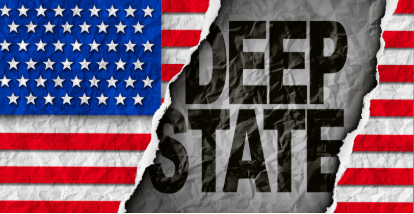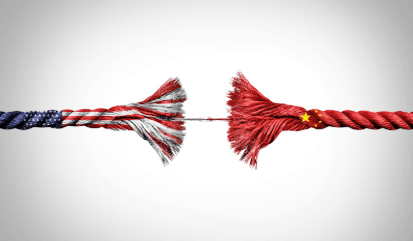
Trump’s Tariff Move Slams the Door on China’s Backdoor Trade Tactic
The De Minimis Loophole: China’s Billion-Dollar Cheat Code
Buried deep in U.S. trade policy is a rule that has functioned as a golden ticket for Chinese e-commerce giants. Known as the "de minimis" loophole, it allows foreign shipments valued at less than $800 to enter the U.S. tariff-free. Initially designed to streamline customs processing for low-value goods, this rule has become a weapon in China's economic arsenal.
In 2015, the Obama administration raised the de minimis threshold from $200 to $800, sparking an explosion in unchecked imports. According to U.S. Customs and Border Protection (CBP), shipments using this waiver skyrocketed by over 600% in the past decade, surpassing one billion items in 2023 alone. A staggering percentage of these shipments originate from China, with fast-fashion retailers like Shein and Temu leading the charge.
The consequences? A flood of ultra-cheap Chinese goods that U.S. retailers simply cannot compete with. But that’s just the tip of the iceberg.
The Dark Side: Fentanyl, Forced Labor, and Retail Carnage
Beyond economic sabotage, the de minimis loophole has opened the floodgates for far darker threats—namely, fentanyl trafficking and forced labor exploitation.
A 2023 Reuters investigation exposed how overseas shippers manipulated the de minimis rule to smuggle fentanyl precursor chemicals into the U.S. By falsely labeling shipments as innocent consumer goods, traffickers managed to sneak in chemicals capable of producing millions of deadly fentanyl tablets. The numbers are chilling: fentanyl killed nearly 75,000 Americans in 2023, and much of it came through supply chains exploiting de minimis exemptions.
There’s also the issue of China’s state-sponsored forced labor. The Uyghur Forced Labor Protection Act (UFLPA) was meant to block goods made by slave labor in China’s Xinjiang region. Yet, the de minimis loophole has allowed companies to skirt these restrictions by breaking up shipments and misdeclaring origins, enabling forced labor products to enter U.S. markets undetected.
Meanwhile, American retailers are being crushed. A report by Coresight Research predicts 15,000 store closures in 2025, fueled in part by Shein and Temu’s aggressive undercutting. This is more than just market competition—it’s economic warfare, and Washington has been asleep at the wheel for years.
Trump’s Tariff Crackdown: A Long-Overdue Response
Enter Donald Trump. As part of his latest round of tariffs targeting China, Canada, and Mexico, Trump has suspended the de minimis loophole for these countries. This means that every Chinese import—no matter how small—will now be subject to tariffs and customs scrutiny. The message is clear: China can no longer dump its cheap, often illicit goods into the U.S. unchecked.
Trump’s move is already having ripple effects. Chinese retailers that built their U.S. presence on de minimis shipping will now face significantly higher costs, eroding their price advantage. The crackdown also strengthens border control efforts, making it harder for fentanyl and other contraband to slip through the cracks.
It’s a bold and necessary step, but the fight isn’t over.
What Comes Next? The Battle for Economic Sovereignty
While Trump’s tariff policy delivers a long-overdue correction, the forces behind de minimis exploitation won’t disappear overnight. Chinese companies, along with their U.S. corporate allies, will push back. Lobbyists are already working to preserve loopholes that benefit globalist interests at the expense of American workers. Meanwhile, Wall Street—addicted to cheap imports and offshore labor—will fight tooth and nail to keep China’s economic pipeline open.
What does this mean for everyday Americans? It means the next phase of this battle will be waged not just in Washington but in your wallet, your job market, and your economy. To protect yourself, you must understand the financial system’s vulnerabilities and prepare accordingly.
That’s why Bill Brocius, one of the sharpest minds in economic warfare, has put together an essential guide:
🔹 Download "7 Steps to Protect Your Account from Bank Failure" here: https://offers.dedollarizenews.com?utm_source=7steps_ebook&utm_medium=website&utm_campaign=Good_Solid_Info&utm_term=static&utm_content=Eric_Blair
🔹 Get Bill’s book, End of Banking As You Know It, to understand how financial elites rig the system against you.
🔹 Join the Inner Circle newsletter for exclusive insights into the next phase of the global economic reset.
The system is shifting. Are you ready?









